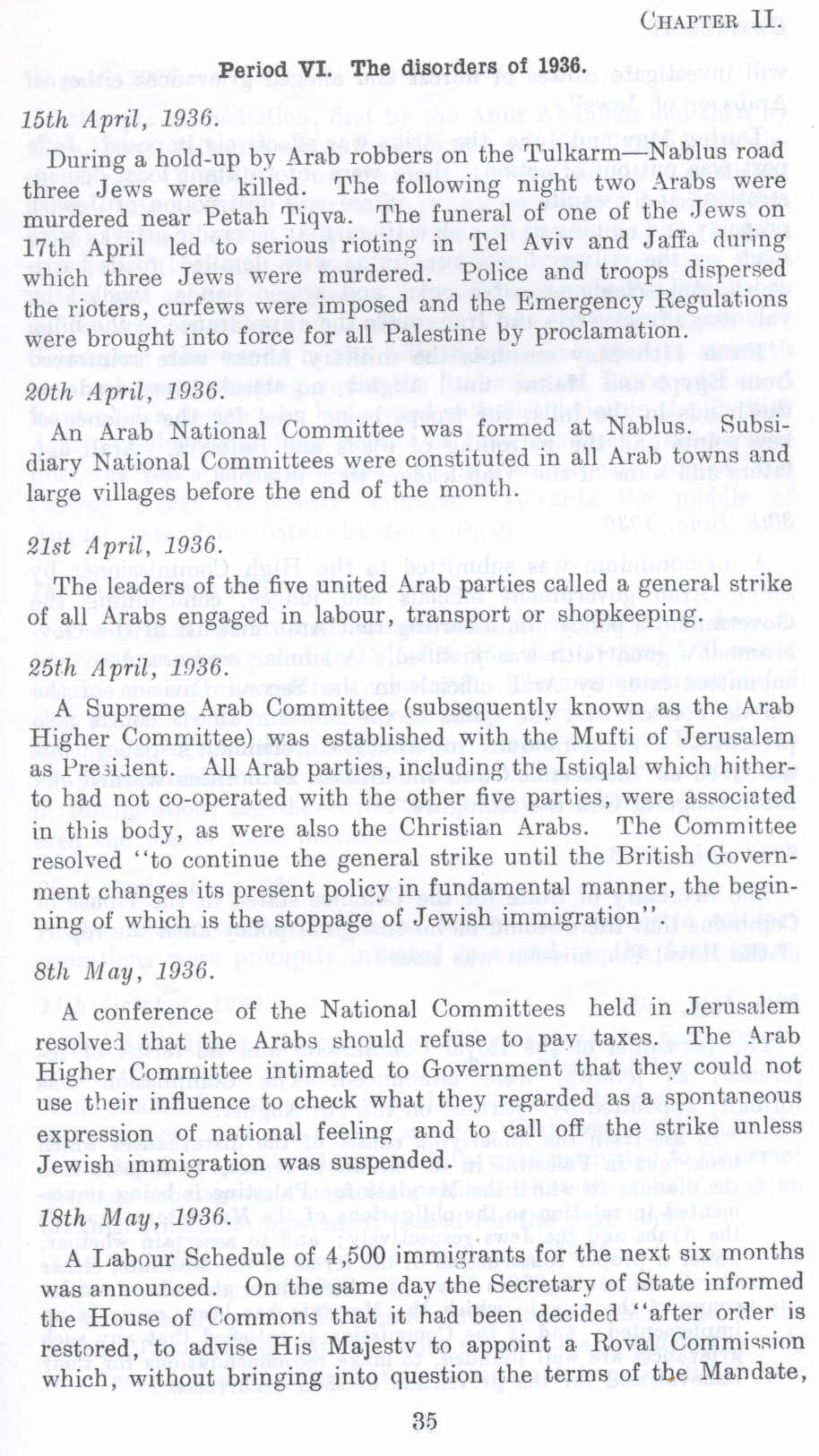| Prev | Next |  |
| Prev | Next |
| PalestineRemembered | About Us | Oral History | العربية | |
| Pictures | Zionist FAQs | Haavara | Maps | |
| Search |
| Camps |
| Districts |
| Acre |
| Baysan |
| Beersheba |
| Bethlehem |
| Gaza |
| Haifa |
| Hebron |
| Jaffa |
| Jericho |
| Jerusalem |
| Jinin |
| Nablus |
| Nazareth |
| Ramallah |
| al-Ramla |
| Safad |
| Tiberias |
| Tulkarm |
| Donate |
| Contact |
| Profile |
| Videos |
British Mandate: A Survey of Palestine: Historical summary, April-May 1936. Period VI: The disorder of 1936 Volume I - Page 35 |
Disclaimer
The above documents, article, interviews, movies, podcasts, or stories reflects solely the research and opinions of its authors. PalestineRemembered.com makes its best effort to validate its contents.


Post Your Comment
*It should be NOTED that your email address won't be shared, and all communications between members will be routed via the website's mail server.
Period VI. The disorders of 1936.
15th April, 1930.
During a hold-up by Arab robbers on the Tulkarm-Nablus road three Jews were killed. The following night two Arabs were murdered near Petah Tiqva. The funeral of one of the Jews on 17th April led to serious rioting in Tel Aviv and Jaffa during which three Jews were murdered. Police and troops dispersed the rioters, curfews were imposed and the Emergency Regulations were brought into force for all Palestine by proclamation.
20th April, 1936.
An Arab National Committee was formed at Nablus. Subsidiary National Committees were constituted in all Arab towns and large villages before the end of the month.
21st April, 1936.
The leaders of the five united Arab parties called a general strike of all Arabs engaged in labour, transport or shop keeping.
25th April, 1036.
A Supreme Arab Committee (subsequently known as the Arab Higher Committee) was established with the Mufti of Jerusalem as President. All Arab parties, including the Istiqlal which hitherto had not co-operated with the other five parties, were associated in this body, as were also the Christian Arabs. The Committee resolved "to continue the general strike until the British Government changes its present policy in fundamental manner, the beginning of which is the stoppage of Jewish immigration".
8th May, 1936.
A conference of the National Committees held in Jerusalem resolve that the Arabs should refuse to pay taxes. The Arab Higher Committee intimated to Government that the could not use their influence to check what they regarded as a spontaneous expression of national feeling and to call off the strike unless Jewish immigration was suspended.
18th May, 1936.
A Labour Schedule of 4,500 immigrants for the next six months was announced. On the same day the Secretary of State informed the House of Commons that it had been decided "after order is restored, to advise His Majesty to appoint a- Royal Commission which, without bringing into question the terms of The Mandate,
Page 35